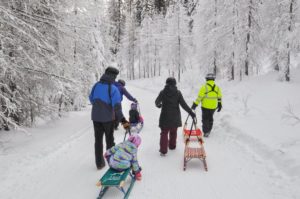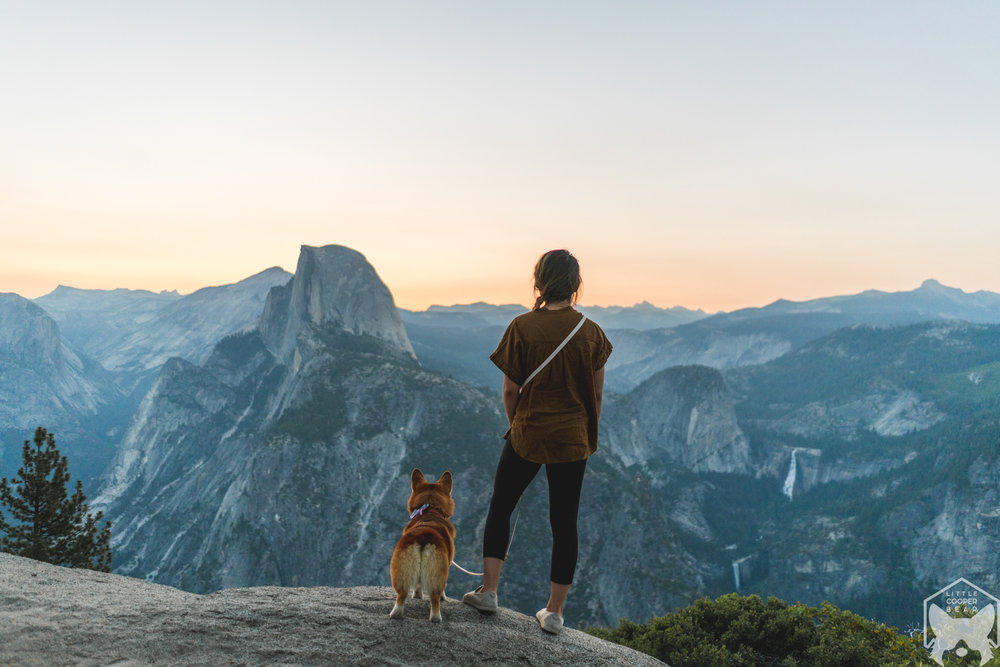We may have discovered, accidentally, a way to give the most radical environmental advocates what they want. We simply shut down the government, or at least part of it (the National Park Service).
The most elitist, anti-people concept is the “rewilding movement.” Put simply, it proposes to discontinue active management of public lands, so humans can live more with nature, rather than taking from it. The term “rewilding” dates from the 1990s, an attempt to change the terminology of wildlife conservation. Promoters said instead of just protecting existing ecosystems, we should re-introduce all the original predators (especially wolves, wolverines, and grizzlies), to restore a “wilder” state of nature. The original land management elitist was Joseph Sax, whose influential 1980 book “Mountains Without Handrails” argued that national parks should be preserved forever wild, not easily accessible for public recreation – and certainly no lodges, campgrounds, roads, or food service.
A superb writer named Dave Roos (How Stuff Works) explains how an adjunct idea called “human rewilding” has become part of the same movement.
“Survivalists and ‘doomsday preppers’ are drawn to the rewilding movement for its emphasis on wilderness survival skills. Eco-activists love the idea of low-impact living ‘off the grid’ using primitive DIY engineering. Hippies dig anything that frees us from slavery to ‘the man,’ especially if limited showering is involved.”
Those are Roos’s words, not mine, but he is right about how the rewilding movement appeals to people with very different, “and often clashing” philosophies. Whatever their reason, lots of rewilding proponents must like the way the National Park Service (NPS) interprets the current government shutdown. That’s because it has stopped, at least for now, several types of active management, to which rewilders are opposed anyway.
 In Rocky Mountain National Park, for example, NPS closed roads entering the park, but still welcomes the public, as long as they don’t bring their cars. Apparently, some families brought their kids and let them go sledding – down various hillsides, even down the middle of closed roads! Park Service employees (furloughed and off duty, but still watching) are horrified. An employee in Yosemite National Park reported seeing someone hiking the Vernal Fall Trail – with his dog. Another sounded the alarm that people were actually camping in Death Valley. Both activities are normally illegal, because obviously people walking dogs or sleeping under the stars are an existential threat to national parks.
In Rocky Mountain National Park, for example, NPS closed roads entering the park, but still welcomes the public, as long as they don’t bring their cars. Apparently, some families brought their kids and let them go sledding – down various hillsides, even down the middle of closed roads! Park Service employees (furloughed and off duty, but still watching) are horrified. An employee in Yosemite National Park reported seeing someone hiking the Vernal Fall Trail – with his dog. Another sounded the alarm that people were actually camping in Death Valley. Both activities are normally illegal, because obviously people walking dogs or sleeping under the stars are an existential threat to national parks.
What a great example of how intelligent people often have vastly different views on the same subject. Perhaps it has to do with one’s general view of human nature (good or evil). In my own neighborhood, there are at least two dozen people who walk their dogs every single day, up and down streets lined with other people’s lawns. Every single one of these people pick up after their dogs, and do no lasting damage to anything. Most BLM employees also attest that with a few rare exceptions, millions of people use public lands every day, treading lightly and packing their trash out with them. It is part of the code of the West.
According to park managers, though, dogs are not the only species that – ahem – relives itself in the great outdoors. It seems that when NPS closes restroom facilities and discontinues trash removal, people must also resort to more “natural” habits. One shocked employee says she has never seen that, in the four years she has worked there. But there has been no such shutdown in the last four years, so she really has no context. Park employees may be horrified, but isn’t this what rewilders actually advocate? Surely their view of people living “at one with nature” does not involve plastic bags.
The contrary – mostly federal – notion that people are always a threat to public lands, which must be strictly regulated and “protected” from humans, is offensive to most westerners. It must also offend the rewilding movement, whose utopian view of ideal public lands does not include roads, trails, campgrounds, restrooms, permits, or law enforcement.
As my friend R.J. Smith writes, “With no guards in the parks, no guides, no docents, no amenities open, and only cold, icy Mother Nature running things, the masses are on their own.” Indeed, when NPS suspends such activities during a shutdown, we are left with unconstrained public access to public lands, an increased measure of freedom, and the responsibility that goes with it. I never expected to find common ground with the rewilding movement, but maybe we agree that a government shutdown is not necessarily a disaster.

A version of this column originally appeared in the Grand Junction Daily Sentinel January 18, 2019.




Comments on this entry are closed.